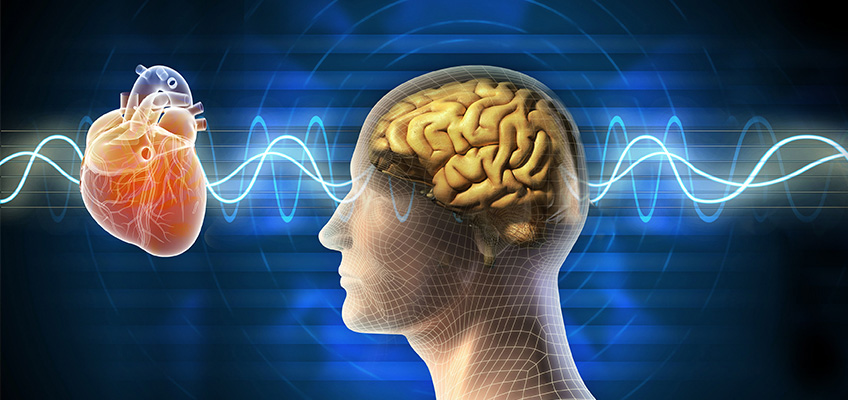
Human Intuition: The Next Level Of Human Awareness?
When we think of intuition and the use of one’s gut feeling, we tend to think about how the brain and body reacts to information we have stored during our lifetime, and how we can use this intuitive awareness to make good decisions, important decisions, and sometimes, life-changing decisions.
However, what about things that we couldn’t possibly have any stored knowledge on, however deep into our subconscious we may go? Do you think we could “guess” the outcome of something before it happened and before we had any way, whatsoever, of actually knowing what would happen? Are we talking about psychic abilities here, parapsychology, or are we talking about normal human functioning? There are two important questions here:
- Firstly, can we as humans predict the future in any way?
- Secondly, can we be affected by someone else’s intentional focus on us, even if they are located remotely from us?
For now I will just focus on the first question. The latter question is one I began answering in this article entitled Relationships and Quantum Physics. If you want to know more about this, then I strongly advise you to read The Language of Entrepreneurship: Energetic Information Processing in Entrepreneurial Decision and Action (Bradley, 2007). This paper is one of the most intriguing papers I’ve read that covers a wealth of empirical research spanning decades that looks at intuition and how, amongst other things, our bodies sense when someone is focusing attention on us. If you’ve ever felt like you “just know” someone is thinking about you, maybe this will start to unfold some answers for you. I know, most people would imply you were being delusional by professing to know things beyond your level of consciousness, but the research paints a fairly informed picture.
So on with the first question above: can we as humans predict the future in any way? Does intuition and the accompanying gut feeling we get, extend further than the knowledge we have based on reason or logic, or on memories or extrapolations from the past?
In an experiment aimed at replicating previous sound and significant research findings, Bradley et al. (2008) write in their paper before describing their experiments and the results they achieved:
“Certainly there is little doubt that prior experience—both conscious and unconscious knowledge—plays an important role in informing entrepreneurial decision and action. However, we contend that there is another source of intuitive information that enables the entrepreneur to access information regarding future opportunities—namely, information about future events that is received and processed by the brain, heart, and autonomic nervous system (ANS). We call this nonlocal intuition to emphasize that such intuitive perception is not based on memory of prior experience. We have been conducting a series of investigations and experiments over the past few years to test the hypothesis that repeat entrepreneurs have a greater ability to perceive and process nonlocal information about future potential business opportunities than unsuccessful entrepreneurs and the ordinary business person.”
Intuition in Entrepreneurs and Non-Entrepreneurs – The Experiment
So what did they do and what did they learn about nonlocal intuition in entrepreneurs and non-entrepreneurs? In this experiment, participants were non-entrepreneurs who had been practicing emotional management and coherence building techniques designed to enhance intuitive ability. The researchers later compared data from a previous similar study using serial entrepreneurs from the Cambridge Technopol to compare data from this experiment with.
A gambling experiment was set up so that the participant would have to make an investment by placing a bet, much like in a game of roulette, on either a red or black choice with either a bet of 25c, 50c, $1 or $2. A computer screen in front of the participants would display a completely randomly selected result, and display how much the participant was winning or losing by after each reveal. They were told they would take home however much money they won in the game to help ensure they were invested in the game.
Within each session consisting of 26 trials in each, the session was divided into three phases:
- the pre-bet period (4 seconds),
- the post-bet period (12 seconds),
- and the post-result period (6 seconds).
Throughout the experiments researchers graphically measured the participants’ skin conductance levels and heart rate patterns [beat-to-beat changes using an electrocardiogram (ECG)]. This enabled them to check for any changes within the body.
The post-result period was important for validating that the participant was invested in the outcomes of the game so as to ascertain that any changes in skin conductance levels or heart rate variability were indeed due to the game and their focused attention upon it.
What the researchers discovered was that there were reliable, significant differences in the heart’s rhythm patterns, once a bet had been placed or was about to be placed, for the impending but unknown win or a loss result. For the 12-14 seconds before the randomly selected result was presented on the computer screen determining the participant’s fate, the heart showed consistent deceleration patterns before the loss outcome, although the outcome had not yet been selected by the computer! Similar findings were found by McCraty at al. (2004) when using emotionally arousing stimuli vs. non-emotionally arousing stimuli. Essentially, the heart and possibly the skin, sensed whether they were going to win or lose, before they knew they were, before anyone knew they were.
The results suggest that once we focus hard on something, we can tune into whether or not it will happen, without any prior knowledge or experience to assist us. The body seems to know something before it has happened, i.e. it knows something about the future before it has unfolded.
Interestingly, the non-entrepreneurs who were asked to achieve a relaxed and peaceful emotional state, had the same outcomes as the entrepreneurs. When coupled with all the other research conducted by these researchers and others before them, it would seem that entrepreneurs tap into knowledge outside of themselves (nonlocal intuition) that enables them to make good business decisions over and over again. They are not merely great entrepreneurs because of their experience, they are great entrepreneurs because of their ability to tune into a sensory system within, one that seems to scan the future for things that are yet to happen, something outside of time and space that seems to exist or not… This research importantly demonstrates that non-entrepreneurs are also able to tap into such intuitive abilities by focusing on reaching a calm emotional state within the self, something frequently referred to as a coherent state, one that enables our brain and body to function at optimal levels.
Interestingly, previous research by McCraty et al. 2004 demonstrates that that the heart taps into this nonlocal intuition (intuition not based on stored memories) before the brain does. In those experiments the brain and body was seen to intuitively detect information from the future before the information could possibly have been known, as demonstrated by data collected from changes in skin conductance levels, activated brain areas and heart rhythm patterns. In other previous experiments, similar findings have been noted.
Researcher, Bradley (2006), gives a theoretical explanation of what happens and how this happens when experiments clearly demonstrate that the body is responding to information about an event that hasn’t even happened, that we have no awareness of, but that is being thought about!
“When the entrepreneur calms his mind and feelings, and adopts a heart-focused state of positive emotion directed to the object, a global shift to psychophysiological coherence is induced which optimizes attentional resonance with the incoming quantum level information from the object of interest. Such attunement brings the outgoing wave field of attentional energy from the entrepreneur’s psychophysiological systems into harmonic resonance with the incoming wave field of energy from the object. The harmonic resonance between the two wave fields of energy creates an optimal channel for communication of nonlocal information.”
Intuition: Implications Of These New Insights
This intuition research suggests the human brain and body is a feeling and sensing organism that can be used to our advantage in ways that we are not readily taught.
When we tune into what the body is feeling and sensing, we can turn that information into informed decision-making, locating future opportunities, avoiding future problems, intuitively guessing (or accessing) people’s thoughts, emotions and intentions, and improving personal and business relationships.
Start asking yourself some important questions so that you’re invested in testing intuition and “nonlocal” intuition for yourself. Use this article on tips for using your intuition to help you, all the while remembering that we could also know what we don’t know and what hasn’t even happened yet and maybe, just maybe, we can make things happen. For more on that latter one of making things happen, have a look at the research paper discussed here and others on intuition by Rollin McCraty, Dean Radin, Raymond Bradley and those they reference.
Nonlocal Intuition Research: The Facts
The research almost sounds unbelievable because it is so mind-blowing but if we just look at the simple facts from the research, not theory or thought, we know that:
- the human body seems to be able to sense something before it’s even happened (Fact 1),
- this sensory perception seems to take place first and foremost in the heart (Fact 2),
- closely followed by the brain and possibly other physiological systems within us (Fact 3).
It would appear that by focusing intently on a topic that we are emotionally invested in, we can tune into potential future realities – sense things that are out of the realms of time and space because they haven’t actually happened yet. It is perhaps these physiological changes that successful entrepreneurs tune into and seems to be an ability that non-entrepreneurs can also tune into with a calm emotional state. Perhaps instead of asking people, “Are you thinking clearly?” we should be asking, “Are you feeling clearly?” Both help us to reach decisions. Both seem to be ordered or disordered depending on whether our emotional state is positive or negative, respectively.
If you want to gain an edge over your competitors or want to elevate your personal or business relationships to new heights, start accessing the sensations you feel within your body, especially that region around your heart, into your daily life. There is verbal communication, there is non-verbal communication, and there is non-verbal-and-unseen communication. Practice utilising each form of communication, it will direct you towards success and away from failure if you start using it like so many others do.
Lastly, for those still curious about gender differences, a similar study by McCraty et al. (2004) looked at how the body intuitively senses something emotional or calm before it’s unfolded in reality, and found there were significant gender differences suggesting women are more intuitive than men. Of course, we’ve always intuitively known that anyway! ;-))

























